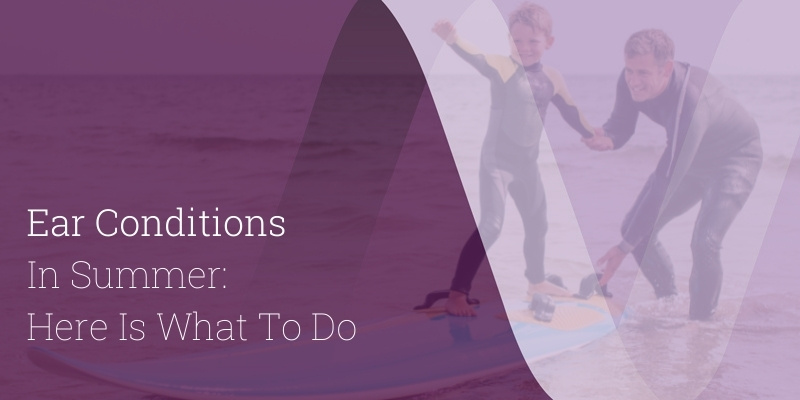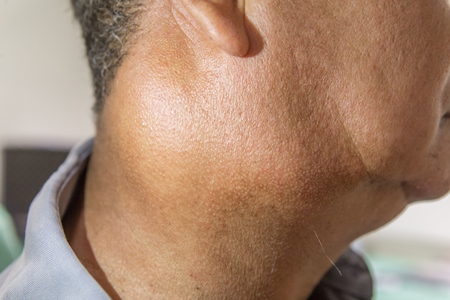
Whether you have opted for a staycation or a popular green or amber list destination, water sports are going to be some of the most coveted activities for many. Moreover, with surfing debuting for the first time in the Olympics at Tokyo 2021, even more people will be tempted to try this adventurous sport. Being in the water has its health benefits, but some people might be at risk of developing ear conditions that could spoil their holidays. Mr Parag Patel, Consultant ENT Surgeon at New Victoria Hospital, tells you what to do to prevent and treat ear conditions in summer.
Surfer’s ear vs swimmer’s ear
Swimmer’s ear and surfer’s ear are triggered by your permanence in the water, even though you are not fully immersed. However, they are two very different conditions.
Surfer’s ear
Surfer’s ear, or external auditory exostosis, is not an infection but a body defence mechanism to protect the eardrum when consistently exposed to cold weather. Usually, the combination of water and wind put people at greater risk of developing surfer’s ear. This condition takes many years to develop.
This condition is more prevalent in men and surfers, between 26% and 73% of cases, especially in professional athletes and long course surf enthusiasts who practise during winter months as well. Aquatic sports amateurs, such as swimmers, kayakers and divers, but also sailors, are also at risk.
When exposed to these two elements, lumps are formed as protection, and you usually experience water trapped in your ear canal. You might experience hearing problems, and ear infections can be frequent.
There is a positive correlation between colder water, years of exposure and the severity of symptoms.
How to treat surfer’s ear
If exostosis becomes severe and you are exposed to frequent infections, surgery is the only option to get rid of the bony growths.
The greater the occlusion in the auditory canal, the greater is the level of pain or discomfort. With the most common type of surgery, the newly formed lumps are drilled out via keyhole surgery with tiny diamond drills.
The post-op recovery takes about 6 weeks, and you will have to stay away from water sports for about 2 months.
Swimmer’s ear
This ENT condition, called otitis externa (external ear canal infection), is due to a bacterial infection triggered by water stuck in the ear canal. If you suffer from surfer’s ear, you are more prone to get infections.
Symptoms include:
- Pain inside of your ear
- Feeling itchy
- Discomfort when chewing food or pulling your earlobe
- Sensation of fullness
- Hearing loss
Other ear conditions
There are some other ear problems that can be quite common during summertime and are often associated with water activities.
Traumatic eardrum perforations can affect water skiers and divers.
If water gets stuck in your ears, bacteria and fungus find the perfect environment to replicate and spread. External ear infections are easier to catch in summer, and teenagers and young adults are usually more exposed to them.
Ear infections in children
Children are more likely to get middle ear infections than adults.
In kids up to 5-6 years old, Eustachian tubes, the canals that connect the back of the throat with the middle ear, are very short and narrow. This passage can be easily targeted by bacteria and viruses. It is easy for fluid and mucus to build up in the tubes, and the eardrum gets inflamed.
Some ear infections might also be caused by adenoids.
Common symptoms of ear infections are:
- Fever
- Drainage
- Problems with balance
- Pain
How to prevent ear problems during the holidays
Prevention is always the best option. If you or your children are keen to avoid ear infections or are exposed to risk factors, you should pay attention to your care routine.
Here are some ear care tips:
- Wear earplugs during your water games and activities
- Use swimmers ear drops when you come out of the water
- Dry your ear with a blow dryer on low heat if you can
- Avoid using cotton buds
- Don’t swim in polluted water
If you are worried about any ear symptoms and would like to book a consultation with our ENT Surgeons, you can call our Outpatient Department on 020 8949 9020 or:













